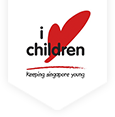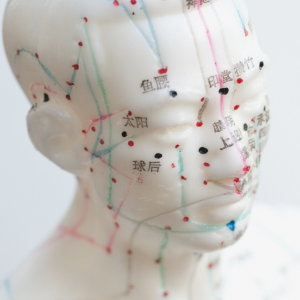This year, I Love Children held its Know Your Fertility Wellness Campaign online through Zoom and live-streamed on Facebook. Here are some of the highlights of the first session held on 6 November 2020.
.png)
The event was hosted by Johnathan Chua, Co-Founder of GRVTY Media, who is currently trying for a baby, and featuring Jayne Tham, a Social Media Influencer, and experts from Thomson Fertility Centre (TFC) and Thomson Chinese Medicine.
A real-life example

After trying naturally for 6 months, Jayne and her husband decided to seek help, their gynaecologist prescribed Clomid to help with ovulation. When nothing happened after a year, they turned to Traditional Chinese Medicine (TCM) where she was given herbs to help improve her body constitution followed by a trip to a fertility specialist who ran some tests and recommended IVF1 for them. Jayne shared that the IVF journey wasn’t easy, but it was all worth it eventually.
“Going through the series of injections and having to self-administer them wasn’t easy, but with a strong support system and an open communication with my husband, it made the whole process less painful,” shared Jayne.
Johnathan also shared that he was glad that both he and his wife went for a fertility health check and found out about both their conditions, he also mentioned the guilt couples who are trying to conceive face when the wives period comes, and they shouldn’t have to blame anyone about it.
What happens in IVF?
Dr Ethiraj Balaji Prasath, Chief Embryologist of TFC then went on to share the process of what happens in the lab when a couple goes through IVF.
As shared by Dr Balaji, the ladies go through a series of hormone injections which help the eggs to grow. Once a desirable number of eggs is reached, egg collection is done under sedation whereby the doctor uses a long needle to aspirate the eggs suspended in the fluid inside the follicles. These fluids get sent to the lab to identify the eggs and incubate them.
“It is recommended for the ladies to take the day off on the day of egg extraction. Ladies may experience some cramps and bloating but patients generally do well, and many don’t even require painkillers.” ~ Dr Janice Tung, Consultant O&G, TFC
The husbands will then have to produce semen samples immediately where the good sperms are selected for insemination in the lab. The insemination can be done in 2 different ways – the conventional way where thousands of moving sperms are added to 1 egg or ICSI2 - where a single sperm is picked and injected into the egg and incubated again.
The eggs are checked to see if they’re fertilised at 18 hours after sperm injection and will continue to be monitored every day till it reaches the embryonic stage which may be varying from 4 cell stage to blastocyst stage. Embryo transfer to the uterus may happen at 4 cells or 8 cells or blastocyst stage3. Up to two good embryos will be placed in the uterus to help embryos to implant themselves into the walls of the uterus. A pregnancy test will be ordered 14 days after the egg transfer to see if the treatment was a success.
.png)
Dr Balaji further added that when there are many good embryos, which is a “bonus”, they can be kept frozen in a “bank” so that couples can use them later and do not have to go through the whole IVF process again.
Fertility treatments
Dr Janice Tung gave her insights on the different types of fertility treatments such as:
Surgery
After a certain time frame of trying naturally, it is better to seek a medical opinion.
As advised by Dr Tung, many conditions can actually be treated with surgery to improve the couple’s chances of a natural conception. Some of these conditions would include Endometriosis, Ovarian Cysts, Fibroids or Blocked Fallopian Tubes.
Ovulation Induction and IUI4
Most ladies with irregular periods or even some with regular periods may not be ovulating. Oral medications and injections can help stimulate ovulation and when used along with timed lovemaking can increase chances of conception. IUI may also be used to aid conception, this is where the husband would have to produce semen sample and the gynaecologist would inject the sperm into the uterus, cutting short the traveling time for sperm to meet the egg.
In summary, Dr Tung advised that couples should seek for medical assistance sooner than later as age is an integral factor. She also further added that fertility treatments are not a magic bullet to get pregnant as the overall success rate is 30% to 40% and will decrease with age.
How can TCM help fertility?
.png)
Last but not least, Physician Ho Chin Ee, TCM Physician of Thomson Chinese Medicine shared the different TCM treatments that can be used to enhance fertility such as acupuncture, moxibustion, herbal medicine and sometimes cupping.
As shared by Physician Ho, “TCM is a lifestyle and not just a treatment”.
“TCM does not treat just one specific part of your body but it addresses your body as a whole and provides a personalised treatment plan to address the various issues and help enhance your well-being. For couples who request to try for natural conception, we will try TCM treatments for at least 6 cycles and if nothing happens, we will refer couples to the western doctors for further health checks.”
.png)
In conclusion, the experts believe that maintaining a balance in anything we do or eat is important and it is always advisable to seek medical assistance earlier than later.
Need peer support while trying to conceive? Join I Love children’s Fertility Support Group Singapore today!
Have questions that are not answered live? Check out this Q&A article on Western Medicine and TCM!
Read the highlights of session two held on 13 November 2020 Understanding Your Fertility here!
1 IVF - In vitro fertilization (IVF) is a type of assistive reproductive technology (ART). It involves retrieving eggs from a woman's ovaries and fertilizing them with sperm. This fertilized egg is known as an embryo. The embryo can then be frozen for storage or transferred to a woman's uterus.
2 ICSI - Intracytoplasmic sperm injection is an IVF procedure in which a single sperm cell is injected directly into the cytoplasm of an egg.
3 Blastocyst stage - A fertilised egg divides and multiplies its cells over 5 to 6 days to become a blastocyst. Embryos that survive to this stage of development have a high implantation potential once transferred into the uterine cavity.
4 IUI - Intra-uterine insemination (IUI) is a fertility treatment in which a sperm is placed into the uterus (woman's womb) by a gynaecologist to facilitate fertilisation of the egg and thus improving the chances of pregnancy.


